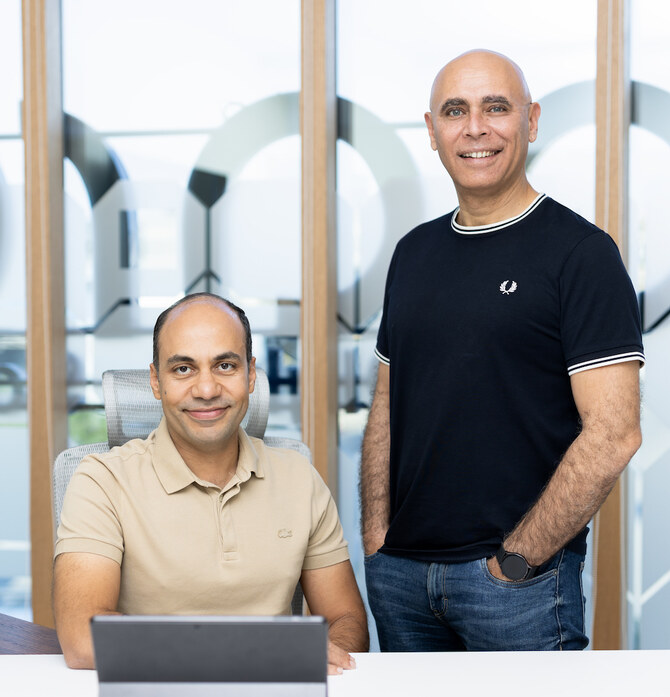RIYADH: Egypt-based supply chain technology company Qara is preparing to expand into Saudi Arabia, leveraging a $2.6 million funding round to support its entry into the Kingdom.
The investment will be used to build a local team, implement its technology solutions, and address key challenges in supply chain traceability and product authentication for businesses in the Saudi market.
“This funding round will be helping us accelerate our expansion into Saudi Arabia, a key market for Qara,” said Hassan Abouzeed, founder and CEO of Qara, in an interview with Arab News.
“With this investment, we can scale our operations quickly, set up our local team, and implement our technology solutions. It enables us to deploy our platform, which focuses on supply chain traceability and product authentication, to businesses in Saudi Arabia, helping them address key challenges related to counterfeiting, transparency, and customer loyalty,” Abouzeed added.
Qara’s decision to expand into Saudi Arabia has been significantly supported by the Kingdom’s National Technology Development Program’s Relocate Initiative.
It offers critical incentives, such as financial support, access to local partners, and assistance in navigating regulations, Abouzeed explained.
“The NTDP’s Relocate Initiative has been instrumental in facilitating our smooth entry into Saudi Arabia. The ease of setting up operations and receiving guidance on navigating local regulations was a huge advantage for us,” he said.
“Moreover, Saudi Arabia’s emphasis on becoming a regional tech hub made it an ideal destination for Qara’s next phase of growth. The incentives from the Relocate Initiative, combined with the country’s strategic alignment with Vision 2030, provided a perfect ecosystem for us to expand and bring our solutions to the market,” he added.
Saudi Arabia’s broader emphasis on digital transformation and its Vision 2030 strategy also played a central role in Qara’s plans.
Abouzeed said: “The Kingdom is open to new innovations, and businesses are increasingly adopting digital solutions to improve efficiency, transparency, and security — areas where Qara’s platform can make a big impact.”
The company’s platform provides tools to combat counterfeiting and enhance visibility.
“Our platform is a comprehensive digital ecosystem that allows producers to authenticate and trace their products throughout the supply chain down to the end consumer,” said Abouzeed.
He noted that the platform has been particularly effective in the Middle East and Africa, where fragmented supply chains often face challenges related to counterfeiting and lack of visibility.
“With Qara, businesses can secure their products with unique digital identities, monitor their distribution in real-time, and foster deeper relationships with customers and distribution parties, ensuring brand integrity and driving growth,” he claimed.
“What truly differentiates us is our ability to not only authenticate and trace products but also establish a direct connection between producers and consumers. As Saudi Arabia’s logistics sector grows, Qara’s solutions will play a critical role in supporting this transformation,” he added.
With the funding secured, the company’s immediate priorities include building a local team and establishing partnerships in Saudi Arabia.
“We’ll also work on forging strategic partnerships with key players in complementary industries. We already started with a loyalty program partner, Walaplus, to expand our points redemption network for Saudi customers,” Abouzeed said.
He added that hiring local talent will be critical to success in the country, and the firm will focus on recruiting professionals who understand the local market, the culture, and the business landscape.
“We already started with hires in sales and product teams, and currently, we are prioritizing roles in our tech team, as these will help us deliver our solutions effectively,” Abouzeed said.
Qara also has ambitious revenue goals for its first year of operations in Saudi Arabia, he revealed, adding: “We are targeting that our business in Saudi Arabia will contribute to 15–20 percent of our overall business by the end of year one.”
In terms of industry focus, Qara sees strong demand for its solutions in sectors where product authenticity and traceability are critical.
“We see significant demand for Qara’s solutions in industries such as pharmaceuticals, construction materials, and consumer goods,” Abouzeed said.
“Additionally, with the government’s focus on Vision 2030, we believe that sectors like food security and electronics will also experience a growing demand for digital solutions that enhance product traceability and consumer trust.”
Beyond Saudi Arabia, Qara plans to expand into other Gulf Cooperation Council countries once its operations in the Kingdom are established — with the UAE and Qatar highlighted as having a high demand for innovative supply chain solutions
“We also see opportunities in Kuwait and Oman, where businesses are increasingly adopting digital technologies to improve their operations and protect their brands,” Abouzeed said.
The funding round, while successful, was not without challenges, particularly in the current economic climate with the global uncertainties and shifting market conditions, the CEO revealed.
“What helped us most was that we’ve been profitable since inception, while maintaining a growth of two to three times annually, which demonstrated our ability to build a sustainable and profitable business model even in challenging market conditions,” he said.
















